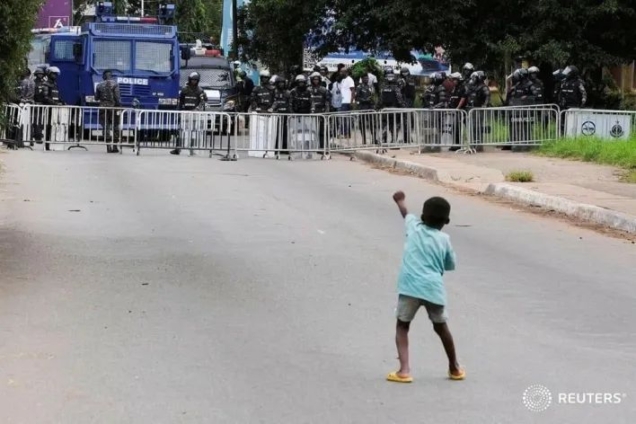Criticize a public official on social media, and you are most likely to get blocked from engaging with that account on the platform. This punitive action was not taken by the social media company as a response to a violation of community rules; it was a deliberate action by the so-called public servant who feeds off your taxes.
There is a troubling trend in Ghana’s digital media landscape that significantly threatens the very essence of freedom of speech guaranteed by the Constitution. Taxpayers whose contributions sustain the very existence of public officials are being blocked from sharing opposing views. Noticeable culprits in this act are elected Members of Parliament. There have also been cited occasions of the President taking such action against critics, and quite recently, the Ghana Police Service.
This action raises significant questions about the boundaries of free expression and the impact it has on Ghana, a country highly regarded and respected as the beacon of democracy in Africa.
Article 21(1a) of our Constitution upholds the citizen’s right to freedom of speech. It states, "All persons shall have the right to freedom of speech and expression, which shall include freedom of the press and other media." This fundamental right is the bedrock of a healthy democracy, fostering open dialogue and holding public officials accountable for their actions. Unfortunately, the recent actions of public officials cast a shadow on this constitutionally enshrined principle.
Such actions carry broader implications as they represent a suppression of diverse opinions. In a democratic society, citizens must be free to express their views without fear of a punitive response. This is a right that must be jealously protected.
Of course, there is the other argument that the actions of public officials are an expression of their speech. However, as a country that is keen on strengthening its democratic credentials, it must draw lessons from developed democracies such as the US, where the law is somewhat tilted in favor of the citizens as a way of ensuring and reminding public officials that they are accountable to the people. We would leave this argument to the courts to decide!
As we deliberate on this worrying development, it is worth noting that the Supreme Court of the United States is set to make a landmark ruling on a similar matter in 2024, answering the question of whether public officials violate the Constitution’s First Amendment when they block someone on social media. This highlights the global relevance of the issue at hand. The ruling will likely set a precedent that could influence how other nations, including Ghana, navigate the intersection of social media and freedom of speech.
I hold the view that the act of public officials blocking critics on social media undermines the principles of democratic governance, as it sends a clear message that dissent is not welcomed, fostering an environment of self-censorship. Public officials must recognize that they are to serve the public’s interest, and their actions should reflect their resolve to uphold the constitutional rights of citizens.
Ghana’s democracy is evolving, and public officials must fully embrace democratic principles. The impending ruling by the US Supreme Court serves as a timely reminder that the issues surrounding freedom of speech on social media are of global significance, transcending borders and impacting the very fabric of democratic governance.
In conclusion, the practice of public officials in Ghana blocking citizens on social media is a cause for concern. It undermines the fundamental right to freedom of speech as enshrined in Ghana’s Constitution, and steps must be taken to address this issue. As we await the decision of the US Supreme Court, it is an opportune moment for reflection and a renewed commitment to the principles that uphold the democratic ideals we hold dear as a country.
The author of this article is Jeffrey Nyabor, a journalist and media law enthusiast.
Latest Stories
-
The role of pregnancy schools in reducing maternal mortality in Ghana
5 minutes -
24-Hour economy policy a major improvement on past fragmented initiatives – IMANI Africa
9 minutes -
BoG sets August 15 as deadline for Virtual Assets Service Providers registration
9 minutes -
Hawa Koomson allegedly assaulted as chaos erupts in Ablekuma North rerun
50 minutes -
Justice Blay accuses former teammate Kwame Opoku of stealing his girlfriend
57 minutes -
AU Anti-Corruption Day: Learners coached to be whistleblowers, to desist from corrupt acts
1 hour -
Police interdict officer seen assaulting reporter in viral video
2 hours -
Ablekuma North rerun: Journalist injured following policeman’s slap
2 hours -
Over 5,600 delegates expected at 2025 NPP national annual delegates’ conference
2 hours -
I hope to inspire Spurs to Champions League success – Mohammed Kudus
2 hours -
Accra to host launch of Global Africa Summit on July 18
2 hours -
Kudus admits Thomas Frank role in signing for Tottenham
2 hours -
ECG installs over 200 new transformers to enhance power supply – Energy Ministry
2 hours -
‘You are going to enjoy me’ – Kudus tells Tottenham fans
2 hours -
Ablekuma North rerun: Fake security personnel arrested near Awoshie DVLA polling station
2 hours

